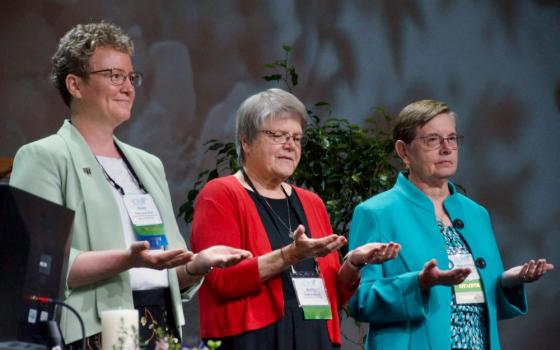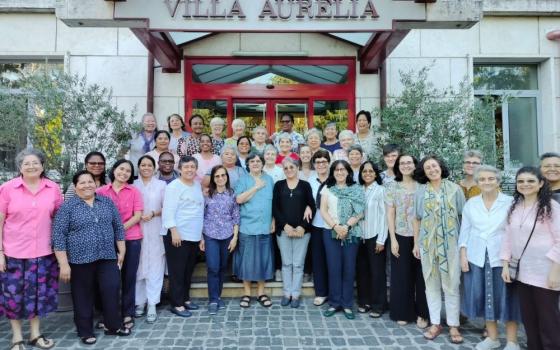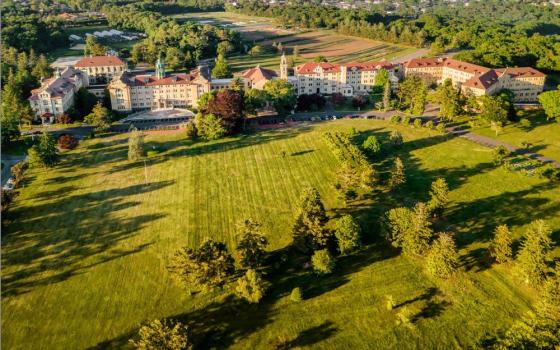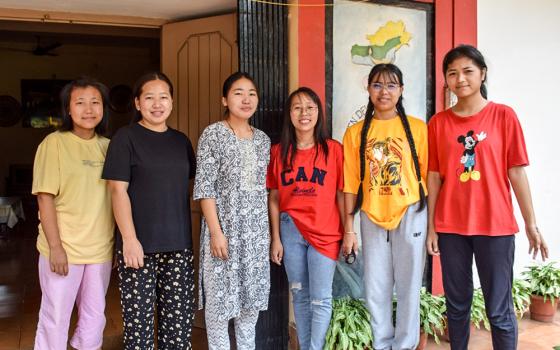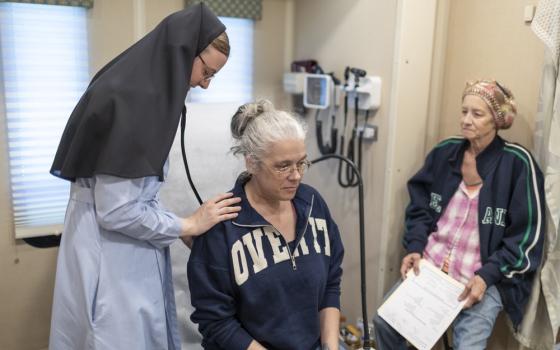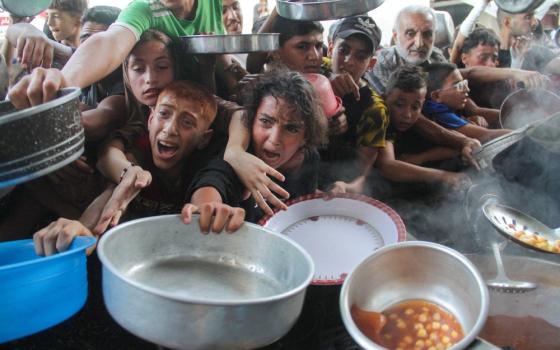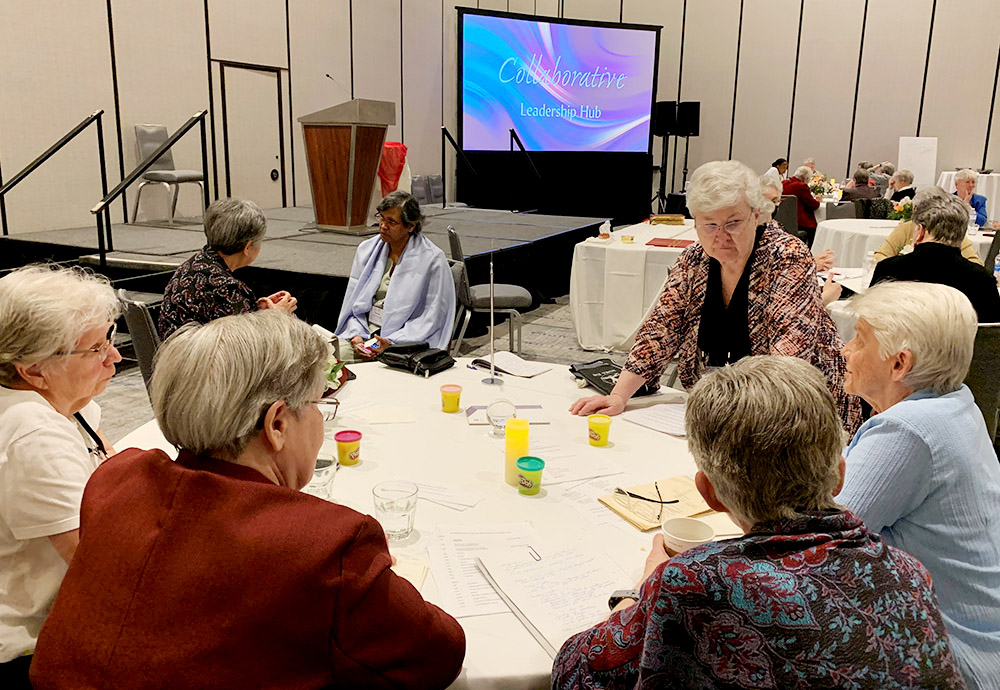
Immaculate Heart of Mary Sr. Anne Munley, standing, associate director of the Leadership Conference of Women Religious' Emerging Life Initiative, facilitates a discussion in Dallas during the summer series of Collaborative Leadership Hubs. (Courtesy of LCWR)
The 2021 assembly of the Leadership Conference of Women Religious introduced Sr. Anne Munley as the associate director for LCWR's Emerging Future Initiative. At the 2022 assembly in August, Munley presented an update on the process, specifically the five Collaborative Leadership Hubs held across the United States between April and June in which leaders contemplated, discussed and discerned the emerging future of religious life.
LCWR represents two-thirds of the 39,452 sisters in the United States; Munley is a member of the Sisters, Servants of the Immaculate Heart of Mary of Scranton, Pennsylvania. GSR spoke with Munley about her August presentation.
GSR: It would be easy to be depressed by the changes currently taking place in religious life, but it seems the five Collaborative Leadership Hubs brought new understanding and perhaps even inspiration. Can you tell us about that?
Munley: In many ways, we're fortunate to be at a time of a great turning in religious life. Many times, there is stabilization that last for centuries, but this is a time when we are clearly seeing a turning point. But what I see in the leaders is this passion in and around the life itself, the meaning and significance of the call and the desire to live it fully — that sense of being part of something bigger.
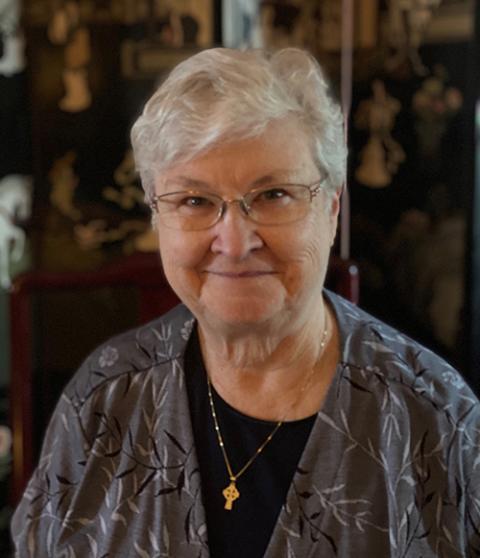
Sr. Anne Munley of the Sisters, Servants of the Immaculate Heart of Mary of Scranton, Pennsylvania (Courtesy of LCWR)
At the heart of it all is the quest for God. Vowed religious are living that call, but there are other God-seekers and a greater awareness that we're in this together. We have so many opportunities to share this life and share that God-quest with other people, so many opportunities for us to grow mutually. It's a powerful time of awareness that we are co-journeyers.
We hear often that religious life ebbs and flows over the centuries, that this is not new in many ways, that it is not an ending, but the start of something new. Are sisters taking comfort in that knowledge, or is it too easy to focus on the daily practicalities the process creates?
The awareness we're part of something bigger and that it is global brings a great energy. It's a challenge, but it's also a possibility, and I think there's a great comfort from that. You can see that in beautiful ways: Even in a congregation moving closer to completion, that passion for the life is there. Spiritual leadership is always about making sense of the times, and it's always drawing us together in to greater oneness.
The heart of the call is that call to joyfulness. This is not an ending, but another step in the journey.
You said in your presentation that there is a growing sense that the identity and mission of religious life is far less about doing than being. Do you think apostolic congregations had put too much emphasis on doing in recent centuries? Or maybe the doing was an outflow or gift of the being, and now we are simply being given different gifts from that being?
I think was the doing was responding to the call of the time. For the 19th- and 20th-century apostolic congregations, there was a tremendous need for the building-up of health systems, school systems, pastoral care. There's always a combination of doing and being. There was also always that inner life that fueled it.
There was a tremendous call for the presence of accompaniment. At this particular time, it's a call for deeper inwardness, and it's a call many in lay life are looking for.
Advertisement
You said in your presentation there is a growing sense of the global sisterhood. How is that playing out? How is it that even while numbers are decreasing, the connections between sisters seems to be increasing?
Part of it is the shift in identity. There is a far greater awareness of the global sisterhood, and it is manifest in so many ways. One is that there's now a great diversity in the leadership in congregations, particularly in international congregations. There's sharing around the issues of Laudato Si' [Pope Francis' 2015 environmental encyclical] and counter-trafficking and the sense of understanding the call of Pope Francis to the synod, that whole sense of wanting to understand what the call means in a very divided world.
I see loads of examples of a deeper awareness of global sisterhood, but I also see it in practical ways: sharing resources, connecting around not just justice or the ministerial, but also resource-sharing and enabling the quality of life to continue.
You spoke of a reimagining of leadership. Can you describe any of the practical, day-to-day ways that is working out? How is it different than what we have been doing?
It's about embracing the call to be a spiritual leader, and a spiritual leader helps make sense of the time.
Right now, we have global, persistent, day-to-day change, and leaders need to engage the sisters in embracing this change. I think it ranges from a broad sense of understanding a more global sisterhood but also the day-to-day aspects of life. We're on this journey together, and we can help each other on the journey.
But in order for the new to come, there are a lot of things that are going to have to be let go. We are not our buildings. These have been vehicles through which the mission was exercised. It's a very human thing to identify yourself with something that has great meaning, but the call is the call.
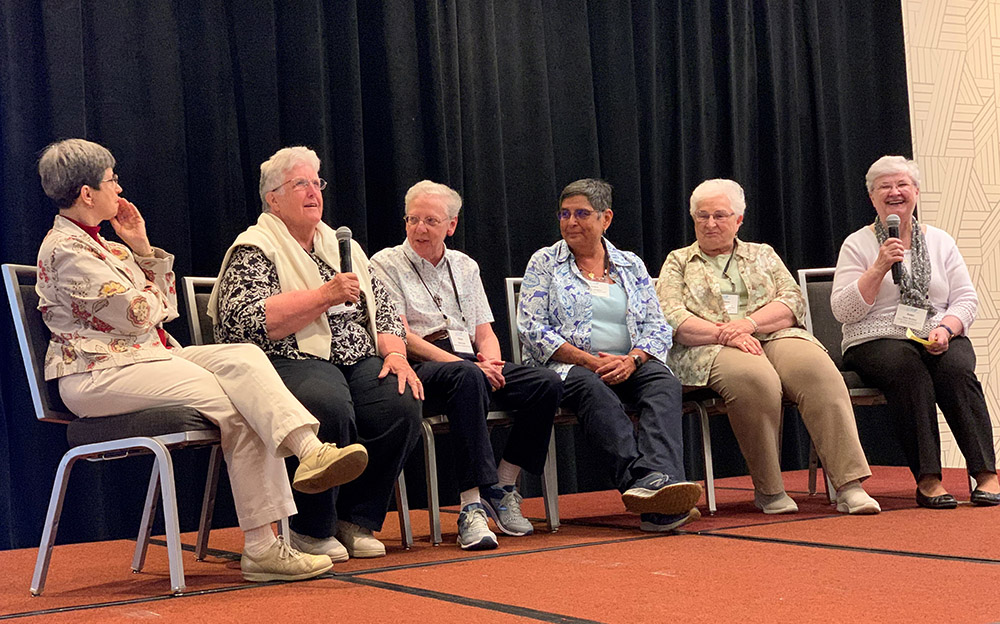
Immaculate Heart of Mary Sr. Anne Munley, far right, associate director of the Leadership Conference of Women Religious' Emerging Life Initiative, facilitates a discussion in Baltimore during the summer series of Collaborative Leadership Hubs. (Courtesy of LCWR)
Yes, there is grief. There is attachment. But the creativity part of transforming those things into new resources — that's a great gift springing from that inner life of meaning.
Your presentation touched on the idea of leaders being agents of change. No one likes change. How are leaders engaging their members in this evolution? Have you run into leaders who are resisting change?
We're really beginning the third year of this discernment, and there has been very prayerful, deep listening. There have been conversations with leaders and conversations of leaders with other leaders. The leaders are acutely aware that it's important to look at what the call is now and to do what needs to be done, even when it's doing what is the very difficult and challenging work of transitioning.
You said, "What younger religious are helping us to see is that our identity is not to be found in institutionalized expressions of what we do, but in who we are and in the quality of the presence that we bring to one another and to the world." Most people would assume that it would be younger sisters that want to focus on doing, while older sisters would want to focus their remaining energies on being.
Younger members, they have a deep faith in the call. And it's the call that is at the center of their life. That is at the very core of their identity. The call by love to be love for the life of the world. They are fearless because they are so invested in that call.
You drew a beautiful connection between a star at the end of its life and the paschal mystery. We know there is no Easter without a Good Friday, and we also know that we are literally made of stardust, that unless stars died and went supernova, spreading their elements across the universe, the ingredients for life on Earth would be missing. But it must have been so difficult for Mary and the disciples on Good Friday to look ahead to Easter, to even imagine an Easter. From the Hub process, would you say sisters are focused on what appears to be a light disappearing — a star going out — or on the stardust they are sharing, the seeds of the future?
Without question they are looking to the future. One of the most inspirational aspects of the hub process was how frequently the sisters talked about stars. It's not a light that's going out, it's light that's bursting: Everything we do now is seeding life for the future.
It's a beautiful and powerful and compelling time to be a religious.

